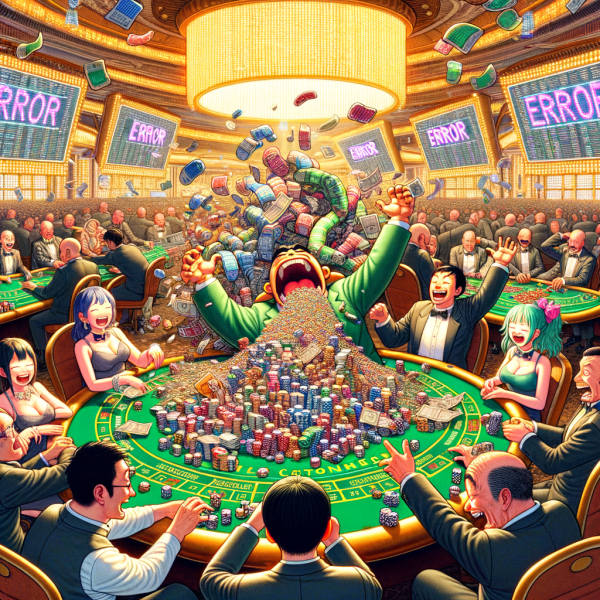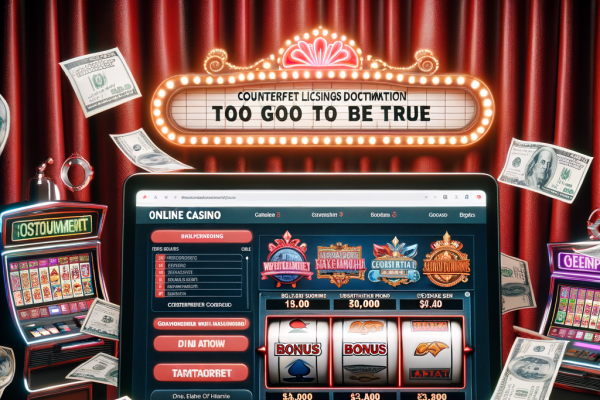The Concept of House Edge: Understanding Its Importance
The house edge is a fundamental concept in the gambling industry, representing the mathematical advantage that a casino holds over players in a game. This edge ensures that, over time, the casino will generate profit regardless of the outcomes of individual games. For example, in a game of blackjack, the house edge might be around 1-2%, while in roulette, it can reach up to 5% depending on the type of bet. The house edge allows casinos to operate sustainably over the long term, funding their operations, paying staff, and providing entertainment to patrons.
Without a house edge, the entire framework of casino gaming would be thrown into disarray. Players would enjoy a level playing field where their chances of winning would not be skewed by the casino’s advantage. While this may seem appealing at first glance, it undermines the very business model that allows casinos to thrive. The absence of a house edge could result in unsustainable operational costs for casinos, leading to a potential collapse of the industry.
Moreover, the house edge serves as a psychological tool, creating a perception of fairness and excitement among players. Many gamblers are aware of the odds, and this knowledge can contribute to their overall enjoyment and sense of engagement. The thrill of playing a game with an inherent risk is a significant part of the gambling experience. Removing the house edge could alter this balance, transforming casinos from entertainment venues into mere platforms for risk-free gambling.
In summary, the house edge is not merely a profit-generating mechanism; it is a crucial element that supports the entire casino ecosystem. Without it, not only would the economic viability of casinos be jeopardized, but the overall gambling experience would be fundamentally altered, potentially leading to a less engaging environment for players.
Economic Impact of Casinos Without a House Edge
Should casinos operate without a house edge, the immediate economic ramifications would be profound. Firstly, the revenue generated from gambling would plummet, as players would win more frequently and in larger amounts. This would lead to a significant reduction in profits for casinos, which rely on the house edge to maintain their financial health. Consequently, many casinos would be forced to close their doors, resulting in widespread job losses in an industry that employs millions.
Furthermore, the tourism industry would likely suffer as well. Casinos are often a significant draw for tourism, contributing to local economies through hotel stays, dining, and entertainment. A decline in casino revenues could lead to reduced investments in infrastructure and amenities in areas dependent on gambling tourism. Cities like Las Vegas, Atlantic City, and Macau, which thrive on their casino economies, could face economic decline and reduced global competitiveness.
In the absence of a house edge, casinos might attempt to adapt by raising prices on other services or introducing high-stakes games to recoup losses. This could lead to an increase in the cost of entertainment, dining, and accommodation, making the overall gambling experience less accessible to the average consumer. The ripple effect of such price increases would not only impact gamblers but also the wider economy, as fewer people would be able to afford the overall experience.
In summary, the economic impact of eliminating the house edge would be far-reaching, affecting not just casinos but also the broader communities that depend on them. The potential for a decline in tourism, job losses, and increased costs for consumers would create a precarious economic landscape for many regions.
Potential Changes in Player Behavior and Gambling Habits
If casinos were to operate without a house edge, player behavior and gambling habits would undoubtedly undergo significant changes. Initially, players might experience a surge in optimism, believing that they have an equal footing against the casino. This newfound sense of fairness could entice more individuals to participate in gambling, resulting in higher volumes of play. However, as the novelty wore off, the dynamics could shift dramatically.
Without the inherent risk associated with the house edge, players might become more reckless in their gambling habits. The thrill of winning frequently could lead to a false sense of security, causing some individuals to gamble with funds they cannot afford to lose. This could ultimately result in an increase in problematic gambling behaviors, as players may struggle to manage their finances when they perceive the odds to be stacked in their favor.
Additionally, the social aspect of gambling might be altered. Currently, many gamblers enjoy the camaraderie and competition found in games where the house edge plays a critical role. Without that element, the social dynamic may shift, leading to less interaction among players. Gamblers may approach games more as individual pursuits rather than communal experiences, which could diminish the sense of community that many casinos foster.
In conclusion, while the absence of a house edge may initially attract more players, it could lead to detrimental long-term consequences. Changes in behavior, increased risks of problem gambling, and a diminished social environment are all potential outcomes that casinos would need to consider.
Implications for Casino Revenue and Business Models
The casino industry is built on the premise that games will yield a profit over time, thanks to the house edge. Removing this essential component would necessitate a complete reevaluation of current business models. Without the predictable revenue streams generated by the house edge, casinos would have to explore alternative avenues to sustain profitability.
One possibility would be for casinos to pivot towards a more diversified revenue model. This could involve increasing their focus on non-gambling activities such as entertainment, dining, and retail. With less reliance on gambling income, casinos might invest in live shows, concerts, and other attractions to draw patrons and generate revenue. However, this shift would require significant investment and could potentially alienate traditional gamblers who seek the thrill of gaming.
Another potential avenue could be the introduction of subscription models, where players pay a flat fee for access to games. This approach, while innovative, would require careful pricing strategies to ensure that casinos remain profitable while still appealing to players. However, it introduces complexities regarding player retention and satisfaction that would need to be thoroughly examined.
Ultimately, the implications of removing the house edge would compel casinos to rethink their entire business strategy. The adaptability and agility of casinos in this new environment would determine their long-term survival. Yet, the challenges they face in maintaining profitability amid changing consumer expectations could render many existing business models obsolete.
Regulatory Challenges and Legal Considerations Ahead
The elimination of the house edge would undoubtedly raise numerous regulatory challenges and legal considerations. Governments around the world regulate the gambling industry to ensure fairness, integrity, and responsible gaming practices. If casinos were to operate on a level playing field, regulators would face the difficult task of redefining the framework for gambling oversight.
One of the primary concerns would be the potential for increased instances of fraud and collusion. If players felt that they had a guaranteed advantage, they might conspire to exploit the system, leading to ethical and legal dilemmas for casinos and regulators. This could create a need for more stringent protocols and oversight to ensure the integrity of games and protect both casinos and players.
Additionally, the absence of a house edge would complicate taxation structures. Governments typically rely on tax revenues generated from gambling profits, which could dramatically decrease. This could lead to budget shortfalls in areas such as education, healthcare, and public safety that depend on these funds. As a result, lawmakers would need to reassess tax policies and consider alternative revenue sources to offset the losses.
In conclusion, the regulatory landscape of the gambling industry would face considerable upheaval if the house edge were eliminated. The complexities surrounding fraud prevention, taxation, and oversight would necessitate a collaborative approach among stakeholders to address these challenges effectively.
Exploring Alternative Models for Fair Gambling Practices
While the concept of removing the house edge presents numerous challenges, it also opens the door for exploring alternative models for fair gambling practices. One potential approach could involve implementing a cooperative gaming model, where players pool their funds and share the risks and rewards, rather than competing against the house. This model promotes a sense of community and could mitigate some of the negative consequences associated with traditional gambling.
Another innovative option could be the integration of technology in gaming. Blockchain and smart contracts could provide a transparent and secure way for players to engage in gambling without a traditional house edge. By utilizing decentralized platforms, players could participate in games with predetermined odds and outcomes, fostering trust and accountability. However, these technologies would require widespread adoption and regulatory approval before becoming mainstream.
Furthermore, educational initiatives aimed at promoting responsible gambling could play a crucial role in shaping the future of the industry. By equipping players with knowledge about odds, risks, and responsible gambling practices, casinos can foster a healthier gaming environment, regardless of the house edge. This could lead to a more informed and responsible player base, enhancing the overall integrity of the industry.
In summary, while the elimination of the house edge poses significant challenges, it also presents opportunities for innovation and improved gambling practices. By exploring alternative models and leveraging technology, the industry could adapt to a changing landscape while maintaining fairness and responsibility.
| Aspect | House Edge Present | No House Edge |
|---|---|---|
| Player Experience | Risk and potential for loss | Higher frequency of wins, less excitement |
| Economic Impact | Sustainable casino operations | Potential collapse of casinos |
| Player Behavior | Strategic play with risk management | Risky gambling habits |
| Regulatory Challenges | Clear framework for oversight | Increased fraud and collusion potential |
Q&A Section
Q: What is the house edge?
A: The house edge is the mathematical advantage that a casino has over players, ensuring profitability over time.
Q: What would happen to casinos if there were no house edge?
A: Without a house edge, casinos would struggle to maintain profitability, potentially leading to closures and job losses.
Q: How would player behavior change in a no-house-edge environment?
A: Players might gamble more recklessly, believing they have an equal chance of winning, which could lead to problematic gambling behaviors.
Q: What regulatory challenges would arise without a house edge?
A: Increased risk of fraud and a need to redefine taxation and oversight frameworks would pose significant regulatory challenges for authorities.
Q: Are there alternative models for fair gambling practices?
A: Yes, cooperative gaming models and the use of blockchain technology are potential alternatives that could foster a fair gambling environment.





